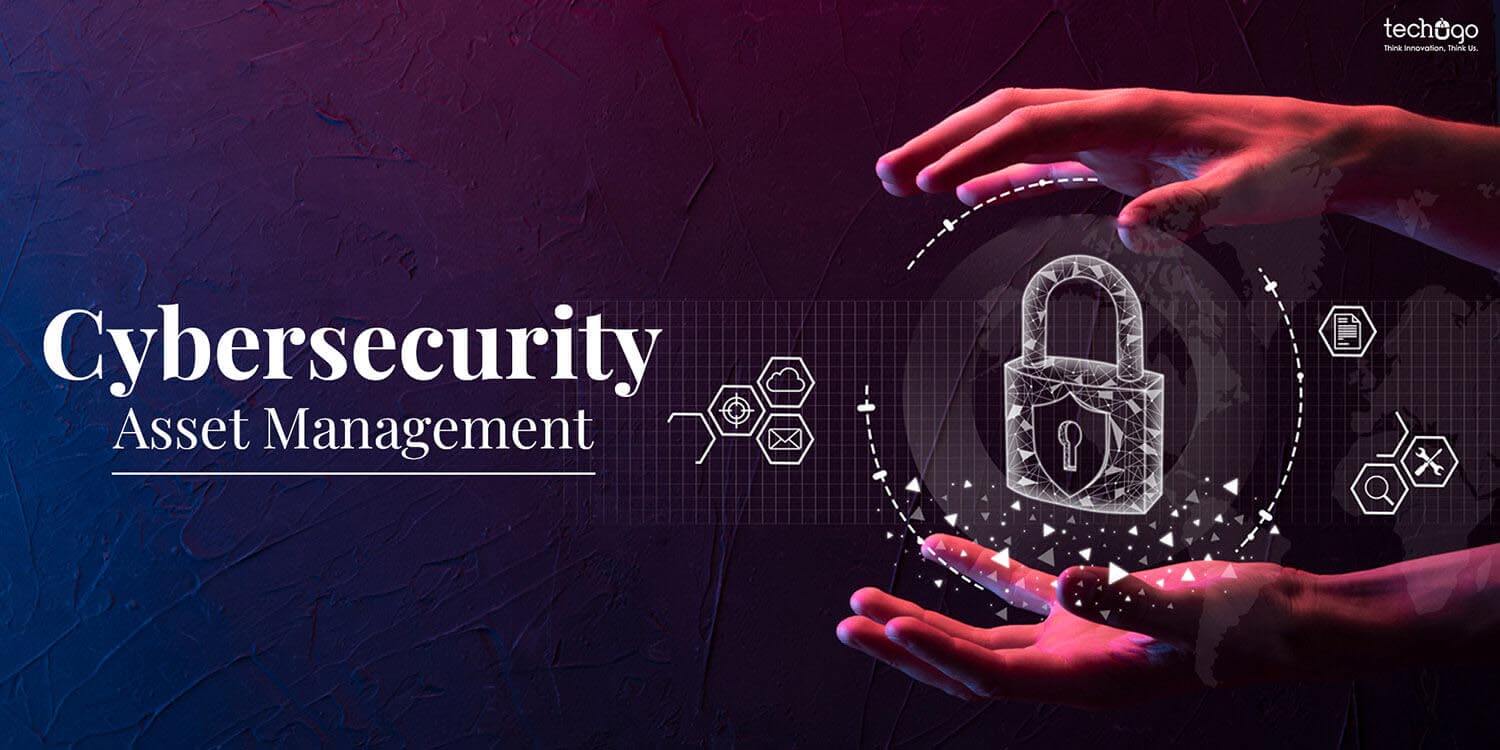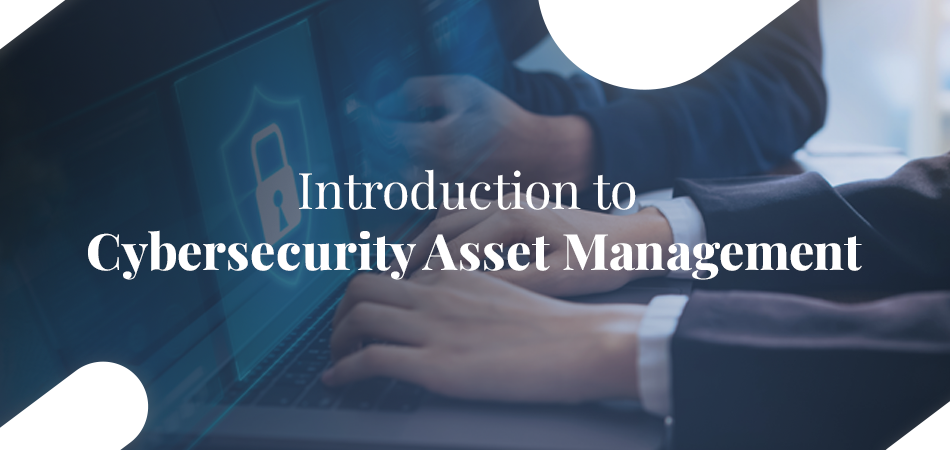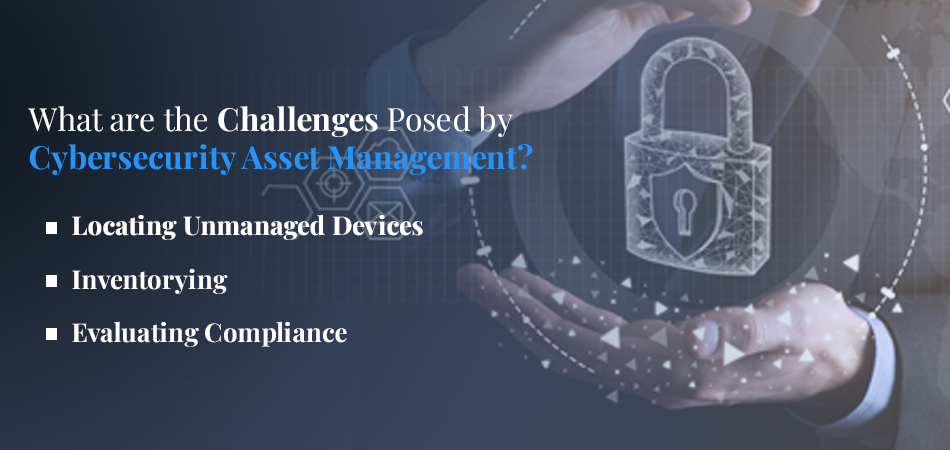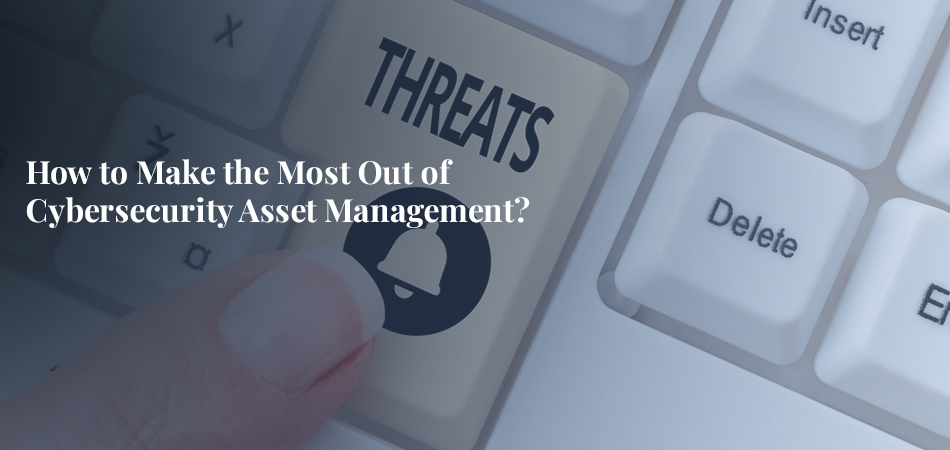28 Feb 2022
Updated on December 29th, 2022
Cybersecurity Asset Management: An Efficient Manner to Legitimize Your Security Team!
Surbhi Bhatia

Long gone are the days when IT assets were discussed in a closed network, especially prior to the COVID-19 pandemic. Now that people have begun working remotely, assets are highly distributed, also leading to difficulty in its management.
Fortunately, security teams are now getting a hold of these assets and the accompanying risks via the help of a mechanism called Cybersecurity Asset Management.
What does the security team do with it?
How does the mechanism benefit the startups and other businesses?
Are there any negative impacts of asset management?
If you’re looking forward to acquiring answers to these questions, you’ve landed at the right place! Therefore, we’ll talk about everything you need to know about cybersecurity asset management. So, let’s get started!
Introduction to Cybersecurity Asset Management

According to an industry practitioner Adrian Sanabria, “most security and IT problems begin with visibility.” Therefore, looking forward to the security aspects of the arrangement of these resources is known as cybersecurity asset management.
It is vital to locate the gaps to address any security issues because asset management has a crucial role to play in the entire cybersecurity program.
Notably, any asset that is a part of an IT ecosystem is vulnerable to risks, which is why it is significant to secure the same from any breach since any loophole can pave the way for attackers.
Why Must a Security Team Leverage Cybersecurity Asset Management?
As mentioned earlier, leveraging the mechanism legitimizes a security team, also securing the functionality of an organization and eliminating threats. Not only this, but it has several other benefits to offer:
1. Automatized Assets Addressing
Incorporating the asset management system automatically enables addressing assets that do not stick to the security policies for an organization.
2. Cloud Security
The mechanism helps locate cloud instances that have not been scanned for vulnerabilities or are defected.
3. Elimination of Hindrances
In the presence of a robust cybersecurity asset management system, it becomes easier for businesses to introduce new IT resources without any security distraction. Moreover, decision-making becomes easier since whatever changes that’ll be initiated, the system will catch any vulnerabilities if present.
4. Quick Response
The asset management system also ensures that any potential breaches are detected before they turn into serious security issues. As a result, the response is proactive, and the security teams do not have to wait for the attacks to go active.
What are the Challenges Posed by Cybersecurity Asset Management?

Are you responsible for managing, tracking, securing the assets? Then, you might have faced a fair share of challenges.
Let’s skip to the good part?
These challenges have solutions! Here’s more for you to know:
1. Locating Unmanaged Devices
Unmanaged devices are those which are not registered into a management system and don’t have any security agent installed.
Solution: To prepare a list of unmanaged devices, it is essential to absorb data from the network and agent-based solutions.
Thus, it’ll specify devices that are network-connected and covered by agents.
2. Inventorying
It is one of the topmost issues for the security providers, especially when inventories of newer devices are involved, including IoT Technology devices.
Solution: To address this issue, a customizable data aggregation frequency is important.
3. Evaluating Compliance
In the absence of comprehensive inventory, it can be challenging to acknowledge if all assets stick to compliance requirements.
Solution: The only method to test adherence is understanding every compliance requirement and witnessing how every device functions.
Why Must an Organization Prioritize Cybersecurity Asset Management?
Traditionally, businesses never emphasized cybersecurity asset management since the tools required for automating the processes never existed. Nor was it possible to keep track of real-time and continuous inventories, in the absence of automation.
Therefore, the entire credit goes to automated resource discovery and threat recognition tools; however, cybersecurity asset management also plays a crucial role in maintaining security operations.
Not to overlook mentioning, it is not only important for IT companies to look after their security system but any organization that utilizes hardware and software for its mechanisms.
For instance, manufacturing businesses must ensure the security of heavy machinery, plant control systems, etc.
How to Make the Most Out of Cybersecurity Asset Management?

Cybersecurity asset management demands coming together of numerous processes. For businesses to take complete advantage of the system, they must be able to recognize, access, and mark any security risks associated with their assets while taking the necessary steps. Additionally, they must be able to monitor any assets in real-time and segregate the untrusted ones from the rest.
To Sum Up…
Security providers of today emphasize implementing asset management for a healthier business ecosystem. Moreover, it enables security providers to improve the overall cloud resources and supports the firm’s efficiency. Fortunately, it also tracks down any potential issues before they escalate into major security breaches.
Now that you have enough reasons for implementing cybersecurity asset management into your business, what is your take on the idea?
It is essential to mention that compromising with asset management practices can shoot up the chances of disrupting business operations, putting the organization at stake. Therefore, poor asset management operations are to be strictly avoided.
Have you thought this through?
If that’s a yes, reach out to the experts for more insights on the idea!
Get in touch.
Write Us
sales@techugo.comOr fill this form



